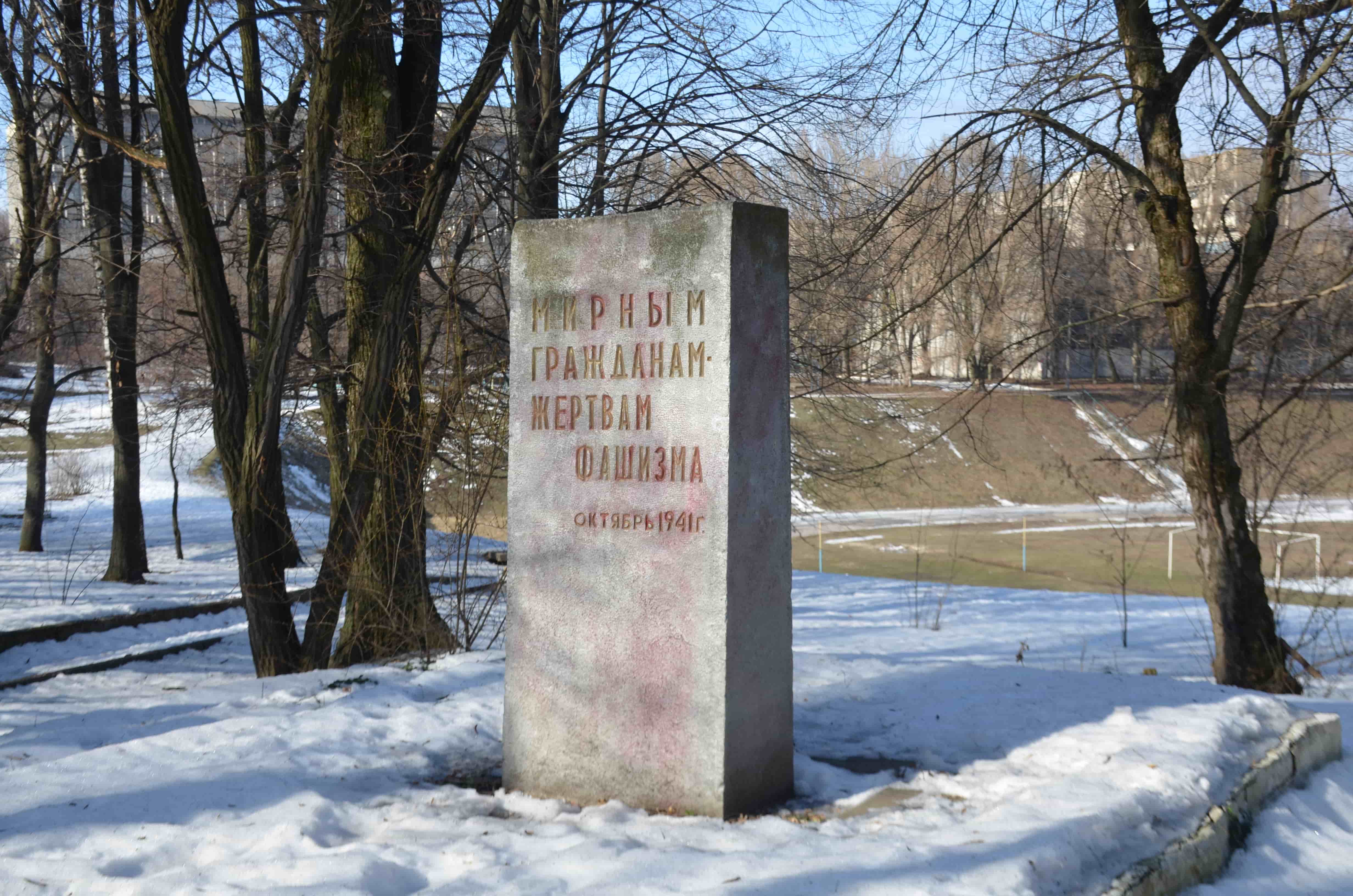On October 13-14, 1941, German servicemen of the special Nazi command of the Nazi security service of the Reichsführer SS (SD) killed 13 thousand Jews of Dnipropetrovsk (now Dnipro). The place of massacre was a ravine on the territory of the forest nursery of the Dnipropetrovsk Botanical Garden. The shootings were the first act of mass murder in the city, but not the last. By the end of October 1943, the Nazi occupation regime had killed more than 21,000 Jewish residents of the city. Honoring the memory of those who died, we offer you a short essay by our scientific employee - Dr. Yehor Vradii, co-author of the book “Holocaust in
Dnipropetrovsk”.
I am 5 years old. An ordinary boy who was born in a large industrial city by Ukrainian standards. Am I often sick, and that's why I often stay at home and don't go to kindergarten like other children? My parents work, so I spend the time until they return from work in the company of my best and, probably, the only true friend at that time – Leo's great-grandfather. Saying “great-grandfather” is unusual for me, little one, so for me he is just Leo's grandfather. Our days together are similar and different at the same time. Walks in parks, obligatory visits to the “Kulttovary” store, which I called “Pulttovary” (because I, five years old, knew better what a “Remote Control” was). Its children's section with a distinctly military content worried me much more than the incomprehensible word “culture”. I could be wrong, but at least now it seems to me that it was Leo's grandfather who first brought me to Gagarin Park – a green area twenty minutes from the house where we lived. Walking through the park's alleys and going down a little, we came across a granite block with an engraved inscription – “To the peaceful citizens who are victims of fascism. October 1941”. I am surprised now, but then, more than thirty years ago, I clearly knew that "fascists" meant Germans. Hours spent watching countless Soviet films about the last great war were reported. To my question, who were these people, Grandfather Lev answered: “Ordinary people who lived in our city.” I don't remember if I was satisfied with this answer, but I don't think I asked any additional questions. Everything was obvious to a five-year-old boy: the war, the Germans, who definitely shoot people. My best friend and grandfather passed away within a year. Therefore, many times together with my father or mother, I walked along the same park alleys and paths of the Botanical Garden, which was very close. Later, while studying at the university, for five years I passed this block almost every day, walking to the study building, the library or the gym.
Sometimes, without stopping, he just noted the coincidence in time on the go – October. And then in 1941 it was October, and there were civilians of Dnipropetrovsk who were shot by the occupiers.
Obviously, that student already knew much more than a five-year-old boy accompanied by his grandfather. Just as I know more today than a student twenty years ago. However, even now, walking through the park, I involuntarily try to imagine and at the same time fear the power of this idea - the feeling of pain and despair that two October days brought eighty-plus years ago. What could thousands of children, teenagers, women, and elderly men who walked the last eight kilometers of their lives feel. They walked along Karl Liebknecht Street (now Mykhailo Hrushevskyi) and other parallel streets up from the central department store towards the new Jewish cemetery, and later – down to the ravine next to the nursery of the Botanical Garden. It physically hurts me to imagine what women said and tried to calm their children or elderly parents; did they cover the ears and eyes of the little ones so that they would not see the men in uniform killing on the first day; how the doomed spent the night in the ravine, knowing that the first rays of the sun on October 14 would surely be the last light they would see in their lives? I know that covered by the first autumn snow, frozen, scared and hungry, they prayed - in Hebrew, Yiddish, Ukrainian and Russian, hoping for His mercy, called Gotenya, cried, went crazy and remained silent.
What did their neighbors, acquaintances, classmates, colleagues feel when they saw the columns of those who were part of their own lives? Did they understand that this part of their lives was lost forever along with those who walked into the autumn fog? What and how did they say, describing the death of their relatives, to their fathers, sons, brothers and just acquaintances who were lucky enough to evacuate, fight Nazism with weapons in their hands and eventually return to their hometown? Did you search for words? Have you ever felt guilty that even when trying to soften the blow, you inflict pain with your words and plunge the person into the darkness of loss? You talk about the death of a loved one and at the same time you remain alive. You dive and dive. Today, after 82 years of the murder of the Jews of Dnipropetrovsk - our neighbors, friends, relatives and acquaintances, we, in one way or another, live this experience - a message of pain and despair from the Evil that came into our home. I am afraid that it will never be possible to completely quench this pain. This pain has no temporal or territorial boundaries, it doesn't care if you were physically with the victim in his last moments. You just stay with him forever. You stay and remember those who left on an autumn morning, never to return.
Yehor Vradii
